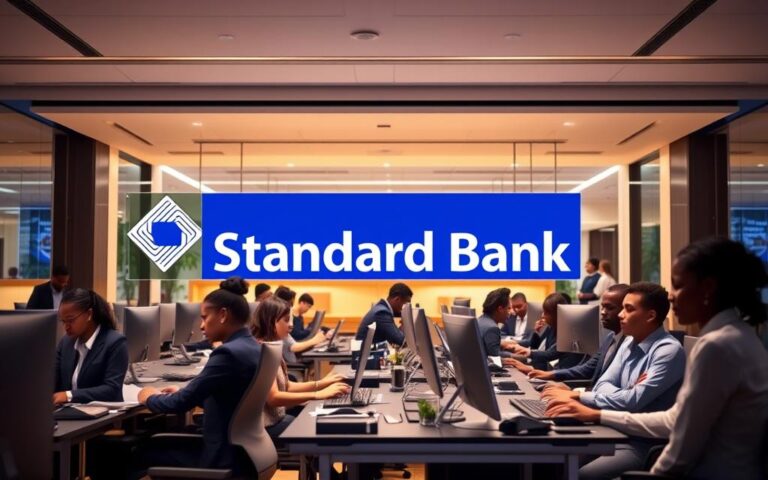Anúncios
In 2022, Canada welcomed over 400,000 new permanent residents. This shows how popular Canadian permanent resident (PR) visas are. They offer many chances for people wanting to call Canada home.
Getting a Canadian PR can be tricky. But don’t worry! This guide will help you understand the process. We’ll cover what permanent residency means and how to get it.
Canadian Permanent Residency
Click now to take the first step and find out how to register.
PR holders can live, work, and study in Canada freely. They also get healthcare and can become citizens later. These benefits can change your life.
Let’s explore how to secure your future in Canada. We’ll look at the main immigration programs and their requirements.
Understanding Canadian Permanent Residency
Permanent residency in Canada is a major step for many. It allows people to live and work in Canada indefinitely. PR status also offers a path to Canadian citizenship.
Definition and Basic Requirements
To become a permanent resident, individuals must meet specific criteria. These include education, work experience, language skills, and health and security checks. The process varies based on individual circumstances and immigration programs.
Rights and Privileges of PR Status
Permanent residents enjoy many rights in Canada. They can live, work, and study anywhere without extra permits. They also access Medicare and social programs like the Canada Pension Plan.
Key Differences from Temporary Residence
Permanent residency offers more stability than temporary residence. PR status doesn’t need regular renewal. Permanent residents can travel freely while maintaining their status.
| Permanent Residency | Temporary Residency |
|---|---|
| Indefinite stay in Canada | Temporary stay with specific purpose or duration |
| Access to public healthcare and social programs | Limited access to public services |
| Pathway to Canadian citizenship | No direct path to citizenship |
Knowing the differences between permanent and temporary residency is vital. It helps people plan their future in Canada. Various immigration programs offer paths to permanent residency.

Major Immigration Programs and Pathways
Canada offers various immigration programs for permanent residency seekers. The canadian skilled worker program, provincial nominee programs, and quebec skilled worker program are notable options. Each program has unique requirements and benefits.
The canadian skilled worker program, or Express Entry, uses a points-based system. It evaluates applicants on factors like education, work experience, and language skills. Successful candidates get fast-tracked for permanent residency.
- The provincial nominee programs (PNPs) are agreements between federal and provincial governments. They allow provinces to nominate immigrants who meet their labor market needs.
- The quebec skilled worker program is for skilled workers settling in Quebec. It has its own selection criteria and application process.
Family sponsorship is another path to Canadian permanent residency. It allows Canadian citizens or permanent residents to sponsor immediate family members. This includes spouses, common-law partners, and dependent children.
| Program | Target Audience | Key Features |
|---|---|---|
| Express Entry | Skilled workers | Points-based system, fast-track to PR |
| Provincial Nominee Programs | Immigrants who meet provincial labor needs | Tailored to provincial requirements |
| Quebec Skilled Worker Program | Skilled workers for Quebec | Specific selection criteria for Quebec |
| Family Sponsorship | Immediate family members of Canadian citizens/PRs | Allows for sponsorship of close relatives |
These programs offer many options for future Canadian residents. Understanding each program’s requirements can boost your chances of success. Explore these pathways to find the best fit for your immigration goals.
Essential Requirements and Eligibility Criteria
Canadian permanent residency offers a bright future with rights to live, work, and study. Specific eligibility criteria must be met for various immigration programs. Let’s explore the key requirements for canadian family sponsorship and canadian investment immigration.
Language Proficiency Standards
Proficiency in English or French is crucial for Canadian permanent residency. Applicants must provide valid test results from recognized agencies like IELTS or CELPIP. These tests showcase an applicant’s language abilities.
Education and Work Experience
Educational and professional qualifications are vital for many Canadian immigration programs. Applicants must provide proof of academic credentials such as degrees or diplomas. They must also demonstrate relevant work experience in their field.
Financial Requirements
Financial stability is essential for Canadian permanent residency applications. Certain programs mandate that applicants satisfy particular income criteria. Others need proof of sufficient funds to support themselves and their family in Canada.
Medical and Security Clearances
Applicants must pass medical examinations and provide a clean criminal record. This ensures they meet health and security requirements for Canadian permanent residency. Information about medical conditions or past criminal convictions must be provided.
Understanding these requirements helps immigrants prepare for the application process. It increases their chances of success and a fulfilling life in Canada.
| Requirement | Details |
|---|---|
| Language Proficiency | Minimum scores on recognized tests like IELTS or CELPIP |
| Education and Work Experience | Proof of academic credentials and relevant work history |
| Financial Criteria | Minimum income thresholds or demonstration of sufficient funds |
| Medical and Security Clearances | Passing medical exams and providing a clean criminal record |
Meeting these requirements boosts chances for successful canadian family sponsorship or canadian investment immigration. It helps secure a place as a Canadian permanent resident.
Benefits of Becoming a Canadian Permanent Resident
Canadian permanent residency (PR) offers many advantages for newcomers. It provides access to healthcare, education, and work opportunities across Canada. PR status can transform your life in the Great White North.
PR status paves the way to Canadian citizenship. This unlocks civic rights and responsibilities. You are eligible to participate in elections as a voter and can also stand for public office.
Permanent residents enjoy the same social services as Canadian citizens. This includes the public healthcare system. You’ll have comprehensive medical coverage for peace of mind.
PR status allows you to work and study anywhere in Canada. This broadens your professional and educational horizons. You can explore opportunities in any province or territory.
Family sponsorship is a key benefit of PR status. You can bring your spouse, children, and parents to Canada. This helps maintain strong family ties and support networks.
Canadian PR offers a bright future in the land of the maple leaf. It offers a wide range of opportunities for both personal and professional development. The benefits are far-reaching and can significantly improve your quality of life.
| Benefit | Description |
|---|---|
| Healthcare Access | Comprehensive public healthcare coverage, including doctor visits, hospital stays, and prescription medications. |
| Educational Opportunities | Access to Canada’s renowned educational system, including universities, colleges, and vocational programs. |
| Work Privileges | The freedom to work in any province or territory, with no restrictions on the type of employment. |
| Social Services | Eligibility for a wide range of social services and benefits, including unemployment insurance, retirement pensions, and disability support. |
| Family Sponsorship | The ability to sponsor immediate family members, including spouses, children, and parents, for Canadian immigration. |
| Path to Citizenship | Permanent residents are on the fast track to Canadian citizenship, with the opportunity to apply after meeting specific residency requirements. |
The benefits of canada pr visa and immigration to canada are clear. Canada offers top-tier healthcare and world-class education. It’s a diverse and prosperous nation where you can build a fulfilling life.
Conclusion
Becoming a Canadian permanent resident offers many rewards and opportunities. We’ve explored various pathways, including Express Entry, Provincial Nominee Programs, and family sponsorship. These routes can lead to a new life in Canada.
Key requirements include language skills, education, work experience, and financial stability. The process may seem challenging, but the benefits are significant. Permanent residents can work, access healthcare, and pursue education in Canada.
The path to Canadian residency has its hurdles. However, it leads to a brighter future in a diverse and welcoming country. With determination and knowledge, you can achieve this coveted status.
Canada is recognized for its exceptional standard of living. As a permanent resident, you’ll enjoy numerous benefits. Embark on your path to a new home in Canada today.
FAQ
What is Canadian Permanent Residency?
Canadian Permanent Residency, or PR visa, allows individuals to live and work in Canada permanently. PR holders can reside, work, and study in Canada. They may also apply for Canadian citizenship later.
What advantages come with obtaining Canadian Permanent Residency?
Canadian Permanent Residency offers universal healthcare and the freedom to live and work anywhere in Canada. PR holders can access social assistance programs and sponsor family members. It also provides a path to Canadian citizenship.
What are the main immigration programs and pathways to Canadian Permanent Residency?
The main paths to Canadian Permanent Residency include the Express Entry system and Provincial Nominee Programs (PNPs). The Quebec Skilled Worker Program and family sponsorship are also available options. Each program has unique eligibility criteria.
What are the essential requirements for Canadian Permanent Residency?
Canadian Permanent Residency requires meeting language proficiency standards and showing sufficient education and work experience. Applicants must prove financial stability and pass medical and security checks. Requirements may vary by immigration program.
How does Permanent Residency differ from Temporary Residence in Canada?
Permanent Residency allows indefinite stay in Canada with broader rights and privileges. Temporary Residents, like students or workers, have limited stay periods and restricted rights. PR holders can live, work, and study in Canada without time constraints.





